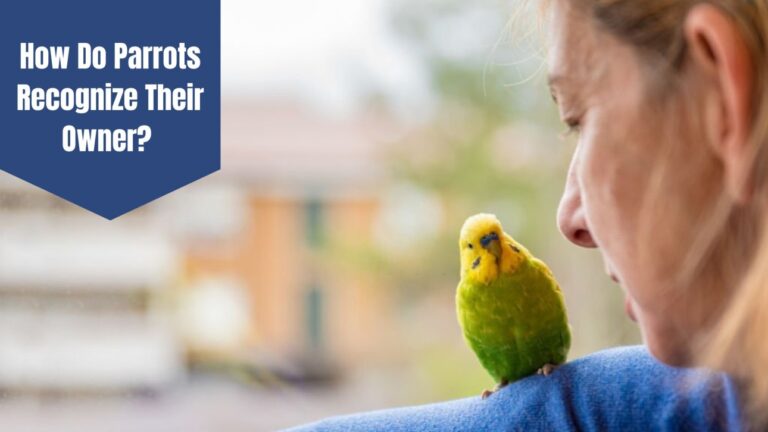Can Birds Move Their Eggs: Uncover the Secrets
Birds are fascinating creatures that have captured the attention of people for centuries. From their colorful feathers to their beautiful songs, birds have intrigued humans for a long time.
One interesting behavior of birds is how they protect their eggs. But have you ever wondered if birds can move their eggs?
In this article, we will explore this question and learn more about how birds take care of their eggs.
The Importance of Eggs to Birds
Eggs are incredibly important to birds because they are the means by which they reproduce.
After laying their eggs, birds incubate them until they hatch, ensuring the survival of their offspring. The entire process is crucial to the survival of the species, as without it, the species could become extinct.
Protecting the Eggs
When a bird lays its eggs, it must protect them from predators, the elements, and other potential dangers.
Birds have evolved a number of strategies to protect their eggs, including building nests in safe locations, camouflaging the eggs to make them difficult to see, and defending the nest aggressively against any threats.
Can Birds Move Their Eggs?
While birds have developed a range of strategies to protect their eggs, one question that many people ask is whether birds can move their eggs.
The answer is yes, but it is not common. Most bird species do not move their eggs once they have been laid.
When Do Birds Move Their Eggs?
Birds are most likely to move their eggs when they feel that the eggs are in danger.
For example, if the nest has been disturbed by a predator or a storm, the bird may move the eggs to a safer location.
Additionally, if the bird feels that the eggs are not receiving enough warmth, it may move them closer to their body to keep them warm.
How Do Birds Move Their Eggs?
When a bird decides to move its eggs, it does so carefully to ensure that the eggs are not damaged.
The bird will gently pick up the eggs in its beak or claws and carry them to the new location.
Once the bird has found a suitable location, it will carefully place the eggs back in the nest or a new location.
Real-life Examples of Birds Moving Their Eggs
While it is not common for birds to move their eggs, there have been a few documented cases of this behavior.
One such example is the American Oystercatcher, a shorebird that nests on the beach.
If a predator or the tide threatens their nest, they will move their eggs to a new location.
Another example is the Australian Brush-turkey, which builds large mounds to incubate its eggs.
If the temperature in the mound becomes too high, the bird will move the eggs to a cooler location.
Understanding when Birds Pick Up their Babies
Birds are known for their amazing parenting skills, and one of the things they do is pick up their babies when necessary. But when do they do it? In this section, we’ll explore the different circumstances in which birds pick up their babies.
Brooding
Brooding is the process of keeping eggs warm until they hatch. During this time, the parent bird will sit on the eggs to keep them at a constant temperature.
After hatching, the chicks are still very vulnerable and require warmth and protection. The parent bird will continue to brood them by sitting on them to keep them warm and protect them from predators.
Moving to Safety: When Birds Feel Danger
When a bird feels that its babies are in danger, it will pick them up and move them to a safer location.
For example, if a predator is approaching the nest or a storm is brewing, the parent bird will pick up its babies and move them to a safer location. This behavior helps ensure the survival of the offspring.
Reasons for Removing Babies from the Nest
Eventually, the babies will outgrow the nest and need to leave. In some cases, the parent bird will pick them up and carry them out of the nest.
This is especially true for birds that nest in trees, where the young may need help getting out of the nest and onto the branches.
Can Birds Transfer Their Babies to Another Nest
Sometimes, a bird may need to move its babies to another nest.
For example, if the nest is damaged or infested with parasites, the parent bird may move its babies to another, safer nest.
While not all bird species move their babies to another nest, some do, and it can increase the chances of survival for the offspring.
Can Parent Birds Retrieve their Babies Once they Leave the Nest?
If a baby bird falls out of the nest, the parent bird may try to get it back in the nest.
However, not all birds are capable of doing this, and some may abandon the fallen chick.
If the parent bird is able to get the chick back in the nest, it will continue to care for it as it would its other offspring.
Why Some Birds Throw their Chicks Out of the Nest
While it may seem cruel, some bird species will throw babies out of the nest.
This behavior is usually seen in birds that have large broods and need to reduce the number of offspring to ensure the survival of the remaining ones. By throwing weaker or sickly chicks out of the nest, the parent bird can focus its energy on caring for the healthier ones.
A Bird’s Ability to Carry its Babies while Flying
While some bird species may carry their babies short distances, most do not.
The weight of the babies can make it difficult for the parent bird to fly and could put both the parent and the babies in danger.
However, some species, such as the African Fish Eagle, have been known to carry their babies while flying short distances.
FAQs:
Yes, pigeons are known for their ability to move their eggs, especially when they feel that their eggs or chicks are in danger. They may pick them up with their beaks and carry them to another location or nest.
In most cases, birds will sit on their eggs almost continuously until they hatch. However, some birds may leave the eggs for short periods to feed or drink water. This behavior can vary depending on the species of bird.
It is rare for birds to push out their eggs intentionally. However, some birds may remove infertile or damaged eggs from the nest to improve the chances of survival for the remaining eggs.
Yes, birds may rotate their eggs during the incubation process to ensure that the temperature inside the eggs remains consistent. This behavior can also prevent the embryo from sticking to the inner surface of the eggshell.
Yes, hens are known for their ability to move their eggs. They may do this to protect their eggs from predators, adjust the temperature of the eggs, or simply move them to a more comfortable location.
The common cuckoo is known for its brood parasitism behavior, where it lays its eggs in the nests of other bird species. The cuckoo chick hatches earlier and will often push out the host bird’s eggs or chicks to ensure that it gets all the food and attention from the host parents.
Conclusion
While it is not common for birds to move their eggs, they are capable of doing so.
Birds have developed a range of strategies to protect their eggs, and moving them is just one of those strategies.
By moving their eggs to safer locations, birds can increase the chances of their offspring surviving and ensure the continuation of the species.
Next time you see a bird’s nest, take a moment to appreciate the hard work and dedication that goes into protecting its eggs.


